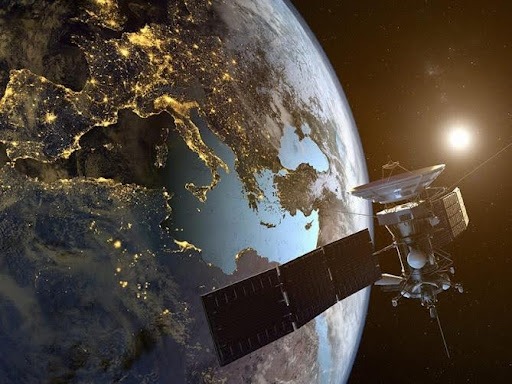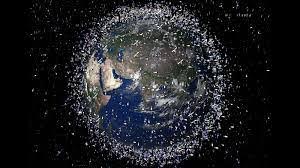As humanity extends its reach beyond Earth, the pursuit of space exploration is no longer confined to science fiction. From satellite launches to ambitious missions aimed at colonizing other planets, the final frontier is becoming increasingly accessible. Yet, with these advancements comes an urgent need to prioritize sustainability in space development. Just as sustainable practices are vital for preserving Earth’s environment, they are equally essential for ensuring that space remains a viable domain for exploration and use.

At Space India, during “Space Explorers Workshop”, “Space Satellite”, Students learn about various types of satellites that have many different uses that include communication, weather forecasting, navigation, and a lot more. They investigate what is a satellite and learn about the basic parts of the satellite by assembling these parts to make a model of a satellite. Satellites have revolutionized the way we look at the world. These satellites continue to develop our understanding of our own Earth and the universe in the best way possible.
The Necessity for Sustainable Goals in Space
Space activities are expanding at an unprecedented pace. The burgeoning commercial space sector, coupled with governmental initiatives, has led to an increase in satellite launches, space tourism, and exploration missions. While these advancements hold immense potential for societal and technological growth, they also pose significant risks, such as orbital debris accumulation, resource depletion, and environmental impacts on celestial bodies. Without sustainable practices, the long-term viability of space activities is at stake.
Sustainability in space is not just a choice but a necessity. The consequences of unsustainable practices could lead to a cascade of challenges, such as the Kessler Syndrome – a scenario where space debris collisions create an uncontrollable chain reaction, rendering certain orbital regions unusable. Moreover, careless exploitation of extraterrestrial resources could lead to irreversible damage to celestial environments, hindering future exploration and discovery.
Goals for Sustainable Space Development
To ensure that space activities remain sustainable, a range of goals can be implemented. These include:
- Mitigation of Space Debris:
- Design spacecraft with end-of-life disposal plans, such as controlled re-entry or relocation to graveyard orbits.
- Develop technologies to actively remove existing debris from orbit.
- Enforce international regulations to prevent the creation of new debris.
- Resource Utilization with Minimal Impact:
- Conduct thorough environmental assessments before mining celestial bodies like the Moon or asteroids.
- Develop technologies that minimize waste and maximize resource efficiency during extraction and processing.
- Sustainable Satellite Networks:
- Optimize the number of satellites launched to prevent overcrowding in orbit.
- Use shared platforms and modular designs to reduce redundancy and waste.
- Preservation of Celestial Environments:
- Establish “space parks” or protected zones on celestial bodies to preserve their natural state for scientific study.
- Prohibit harmful activities, such as excessive drilling or releasing pollutants, on extraterrestrial surfaces.
- International Collaboration and Governance:
- Foster global cooperation to develop and enforce sustainability standards in space activities.
- Create an international body to monitor compliance and mediate disputes related to space sustainability.

Consequences of Ignoring Sustainability in Space
Neglecting sustainability in space development can lead to dire consequences, including:
- Orbital Congestion: The increasing number of satellites could make certain orbital paths unusable, limiting future missions and technological advancements.
- Environmental Degradation: Exploiting extraterrestrial resources without regard for environmental impact could irreversibly alter celestial bodies.
- Technological Setbacks: Uncontrolled debris could damage operational satellites, disrupting essential services like GPS, communication, and weather forecasting.
Ethical Concerns: The exploitation of space resources without equitable sharing could exacerbate global inequalities and lead to geopolitical tensions.

Looking Ahead: A Collective Responsibility
The journey toward sustainable space development requires a collaborative effort from governments, private companies, scientists, and the global community. Education and awareness are critical for fostering a culture of responsibility and innovation in space activities. Additionally, advancements in technology—such as AI-driven orbital traffic management systems and green propulsion methods—can play a pivotal role in achieving sustainability goals.
Space exploration holds the promise of unlocking new horizons and solving some of humanity’s greatest challenges. However, reaching for the stars should not come at the expense of future generations. By embracing sustainability, we can ensure that space remains a domain of limitless possibilities and enduring inspiration.
—
If you like the blog, enroll your school or yourself (k-12 student) in our School Programs or Online Programs, call us at +91-74020 74020 or write to us for any query: getintouch@space-india.com

